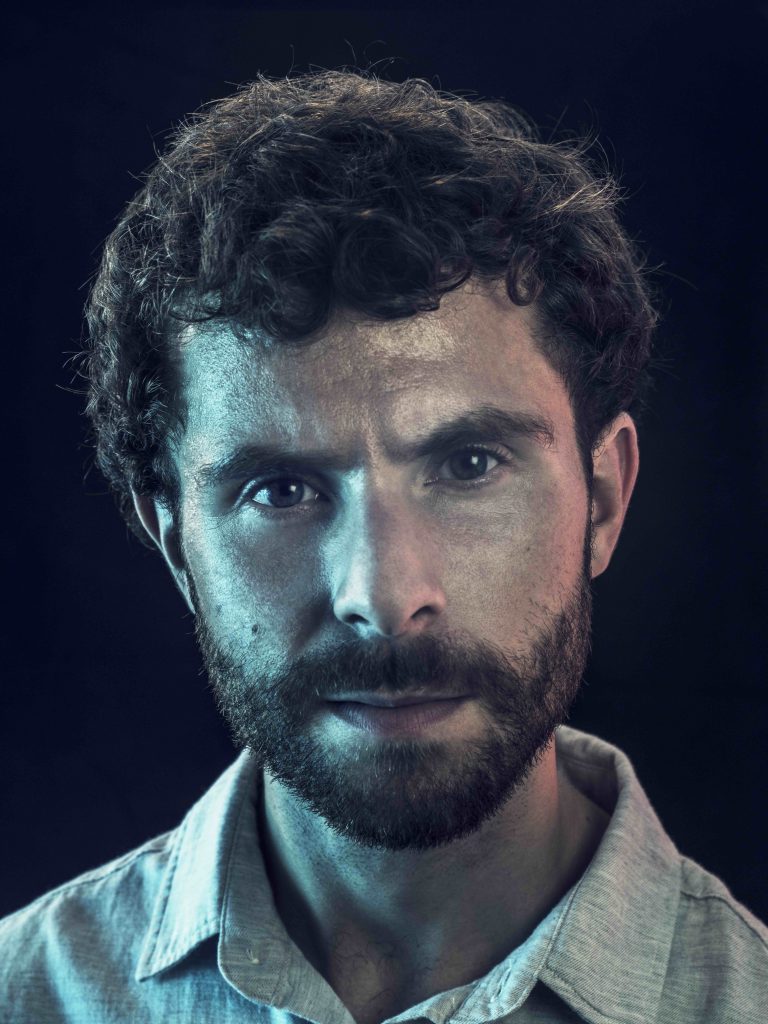Matthew Aucoin: the Genius Behind San Diego Symphony’s ‘Hearing the Future’ Festival
Music Director Designate Rafael Payare’s heady concerts with the San Diego Symphony last weekend marked the opening of the orchestra’s bravely titled “Hearing the Future” festival. In an interview at the Jacobs Music Center, Festival Curator Matthew Aucoin explained what the curious title means and how it came about.

Matthew Aucoin [photo (c.) Steven Laxton]
Even people with a casual relationship to orchestral music know that Igor Stravinsky’s ballet score The Rite of Spring was revolutionary enough to cause a riot at its premiere in Paris in 1913. I asked Aucoin what other works come to his mind when he thinks of music that looked to the future in a prophetic way.
“We see the best side of the Enlightenment in Mozart’s The Marriage of Figaro, an opera that frankly crossed the existing lines of class and station, and the Wagner operas ushered in a maximalist scale. In Jean Sibelius I hear seismic harmonic shifts in his symphonies that predicted changes in society that were not there yet.”
At 28, the energetic Aucoin is comfortable wearing many hats—composer, conductor, pianist, opera coach, writer—and the Symphony’s “Hearing the Future” festival will feature him in several of these roles. Tonight (January 15) at the Auditorium at TSRI, Aucoin will play and preside over a chamber concert with members of the San Diego Symphony, which he has titled “A Brief History of New Music.” When I met him at the Jacobs Music Center, he had just come from practicing the piano part to the Violin Sonata he wrote for his colleague Keir GoGwilt, which will be played on tonight’s program, and wondering out loud why he had made the part so difficult.
Later in the “Hearing the Future” festival, he will conduct the Jacobs Masterworks Concert of January 25 and 27—which he has titled “Matt’s Playlist: Echoes of the Future”—to flesh out his thesis on a grander scale. From his list of early revolutionaries he will offer the opening movement of Beethoven’s First Symphony, Haydn’s Introduction to his oratorio The Creation, and Jean-Philippe Rameau’s “Entrée de Polymnie” from his last tragic opera Les Boréades. From the last century he has selected the finale of Sibelius’ Fourth Symphony and Stravinsky’s “Shrove-Tide Fair” from his Petrushka ballet. His playlist of contemporaries includes pieces by Thomas Adès, Kaija Saariaho, Steve Reich and Andrew Norman.
And of course, Matthew Aucoin. He will conduct two excerpts from his 2015 opera Crossing, based on the life of the American poet Walt Whitman, featuring baritone Rod Gilfrey singing Whitman. Aucoin explained that he wrote this opera about Whitman because the poet was a visionary. “He consciously broke barriers in his poetry, seeing future hearers of his words.” Aucoin contrasted his treatment of Whitman to John Adams’ elegiac Walt Whitman work, “Wound Dresser” for baritone and chamber orchestra: “Instead of presenting the grim, mournful Whitman, I wanted to show his jubilant, ecstatic side.”
In his Crossing program note, Aucoin writes “This is Whitman as I imagine he might have been to himself, starting from a midlife crisis which prompts his radical, heroic decision to drop everything and volunteer in war hospitals.”
New York Times senior Music Critic Anthony Tommasini gave Crossing a glowing review when the Brooklyn Academy of Music presented the opera in 2017, stating that Aucoin’s music “grabbed me form the start. I heard bits of techno and remnants of his teenage enthusiasm for jazz. But the diverse elements merge into a personal voice, deployed with prodigious technical skills.”
With the success of Crossing, Aucoin caught the attention of New York’s Metropolitan Opera and the Los Angeles Opera, where he is serving the last year of his three-year composer-in-residence. These two companies have commissioned Aucoin’s opera in progress, Eurydice, based on Sarah Ruhl’s 2004 play of the same name.
“Yes, there is no shortage of operas about Orpheus and Euridyce, but I have an Orphic obsession.” In 2014 Aucoin wrote The Orphic Moment, a dramatic cantata for countertenor, solo violin, and chamber ensemble. “Working on that piece I discovered how invigorating the story was, and when I finished The Orphic Moment, I found I still had more to say about it. But this time I did not want to write my own libretto, so I decided to work with Sarah Ruhl’s play Eurydice [2004], which needed very little adaptation to turn into a libretto. And working with her on the opera has been a dream collaboration.”
In October 2018, Aucoin was awarded a prestigious MacArthur Fellowship (universally called the MacArthur “Genius Grant”), but the work in progress Eurydice stands between the composer and applying those funds to a visionary project. “I will be spending the next year finishing the opera, and then I will be able to think about what to do with the grant. I may write that piece that nobody would commission, something with a wildly improbable instrumentation—a piece for multiple pianos and a huge percussion component.”

Ken Herman, a classically trained pianist and organist, has covered music for the San Diego Union, the Los Angeles Times’ San Diego Edition, and for sandiego.com. He has won numerous awards, including first place for Live Performance and Opera Reviews in the 2017, the 2018, and the 2019 Excellence in Journalism Awards competition held by the San Diego Press Club. A Chicago native, he came to San Diego to pursue a graduate degree and stayed.Read more…
